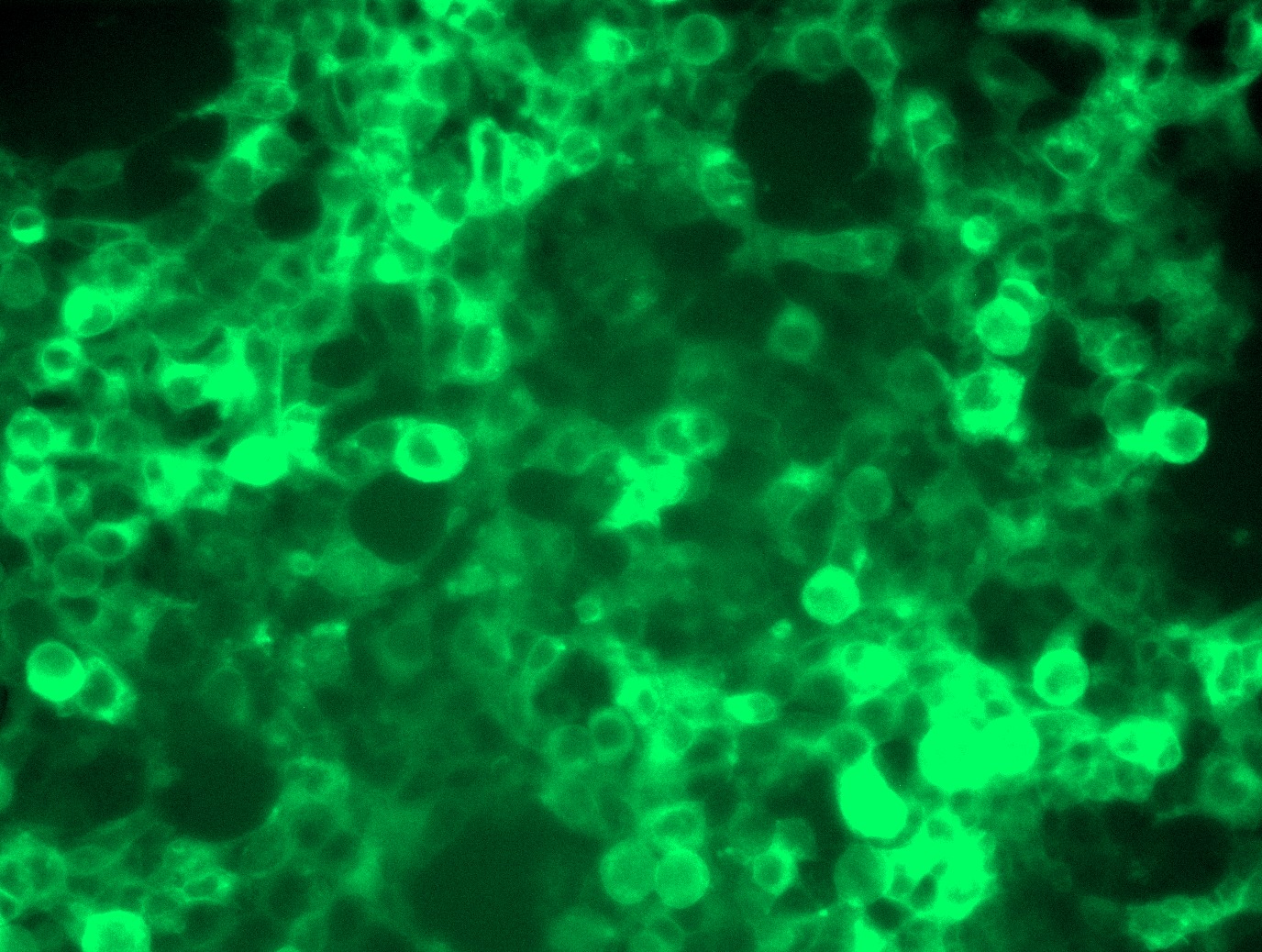PD L2 (PDCD1LG2) (NM_025239) Human Tagged ORF Clone Lentiviral Particle
CAT#: RC224141L4V
- LentiORF®
-

Lenti ORF particles, PDCD1LG2 (mGFP-tagged) - Human programmed cell death 1 ligand 2 (PDCD1LG2), 200ul, >10^7 TU/mL
Lentiviral Particles: DDK DDK w/ Puro mGFP
Buy this product and get 50% off on the Lenti RapidTiter kit. Use Code: Rapid50
USD 365.00
Specifications
| Product Data | |
| Type | Human Tagged ORF Clone Lentiviral Particle |
| Tag | mGFP |
| Symbol | PD L2 |
| Synonyms | B7DC; bA574F11.2; Btdc; CD273; PD-L2; PDCD1L2; PDL2 |
| Mammalian Cell Selection | Puromycin |
| Vector | pLenti-C-mGFP-P2A-Puro |
| ACCN | NM_025239 |
| ORF Size | 819 bp |
| Sequence Data |
The ORF insert of this clone is exactly the same as(RC224141).
|
| OTI Disclaimer | The molecular sequence of this clone aligns with the gene accession number as a point of reference only. However, individual transcript sequences of the same gene can differ through naturally occurring variations (e.g. polymorphisms), each with its own valid existence. This clone is substantially in agreement with the reference, but a complete review of all prevailing variants is recommended prior to use. More info |
| OTI Annotation | This clone was engineered to express the complete ORF with an expression tag. Expression varies depending on the nature of the gene. |
| Reference Data | |
| RefSeq | NM_025239.2, NP_079515.1 |
| RefSeq Size | 1518 bp |
| RefSeq ORF | 822 bp |
| Locus ID | 80380 |
| UniProt ID | Q9BQ51 |
| Cytogenetics | 9p24.1 |
| Domains | IG |
| Protein Families | Transmembrane |
| Protein Pathways | Cell adhesion molecules (CAMs) |
| MW | 30.8 kDa |
| Gene Summary | Involved in the costimulatory signal, essential for T-cell proliferation and IFNG production in a PDCD1-independent manner. Interaction with PDCD1 inhibits T-cell proliferation by blocking cell cycle progression and cytokine production (By similarity).[UniProtKB/Swiss-Prot Function] |
Documents
| Product Manuals |
| FAQs |
| SDS |
Resources
{0} Product Review(s)
Be the first one to submit a review






























































































































































































































































 Germany
Germany
 Japan
Japan
 United Kingdom
United Kingdom
 China
China

